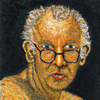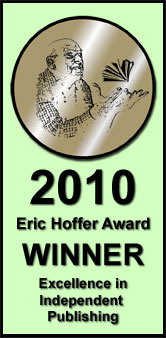Power to the Crazy People

INPP Conference, Manchester, UK July 16, 2010
Ninety year old Thomas Szasz, controversial psychiatrist and author of the Myth of Mental illness, was the keynote speaker at the INPP (International Network of Philosophy and Psychiatry) Conference in Manchester, UK, June 28-30, 2010. I attended and spoke at this Conference. When the conference ended I found my basic beliefs had been shaken to the core. I questioned the concepts of my own presentation.
Szasz is as notorious today as he was in the 1960’s, when I first came across his work. The Myth of Mental Illness questioned the medical model for and the support system of mental health. Szasz can be considered the instigator of the closing of most mental asylums in America and the creator of the thousands of homeless mentally ill people who populate America’s cities. I was an architecture student then looking for a social role for architecture. I dealt with the ideas of Szasz as we strove to make a better architecture for the mentally maladjusted. I was interested because already at 21 I had experienced a mental hospital, The Tompkins One Ward of Yale New Haven Hospital. I didn’t like it and I didn’t think it had helped me.
Asylums were to be replaced with community centers, where the mentally ill could be close to their families and receive modern medical treatment. No more electro shock treatments, ice baths, and strap downs. These ideals never came to pass as the unable were dumped wholesale on city streets without any help or infrastructure. In Manchester, fifty years later Szasz was still Szasz. He had the leftist’s up in arms when he declared that people with mental disabilities are not entitled to state support. The editor of Asylum magazine jumped from his seat to challenge the old man stating that government owed the mentally disabled financial support. Another man from ENUSP gave a passionate plea for state support at the same time declaring that the mentally disabled needed and deserved basic human rights. Szasz chuckled at the men stating they were proposing the same old answers and standing on the same old positions of years ago. But has anything much changed since the state supported mental asylums were closed down? To hear Szasz and other you would think not.
The Medical model of mental disability that treats conditions as diseases of the brain still flourishes and with the use of brain scans that can detect depression, schizophrenia, and a whole host of other ailments has reinforced that position. Philosophy it seems takes issue with the medical model. The philosophers I heard questioned whether or not psychiatry could rely on it scientific basis to describe situations of human difficulty. The specifics of the argument were lost to me, but I did understand that philosophy believes the human condition can’t be limited to only scientific explanations. The issues are larger, and more universal.
I was amazed and remained amazed as I listened to the statements and positions declared at this conference. Szasz’ arguments which I had long forgotten came to me as fresh ideas. Other positions were alien to me in their challenge to the medical model of psychiatry that is so dominant in the USA. Many of the arguments as promulgated by members of ENUSP (European Network of (ex-) Users and Survivors of Psychiatry) seemed to go directly against the medical model. These folks who are articulate and passionate about their positions reject the disease model for mental conditions. They see themselves involved in a civil rights struggle. They demand that they have civil rights not to be forced into treatment by the medical establishment and that any therapy done be done with their consent. They see themselves as merely different, a difference which can be a disability; and as a disability should have the same respect and civil protections as other disabilities. ENUSP is engaged in a human rights struggle against a medical profession that takes away their voice and defines who they are. ENUSP is engaged in political battle to change the way society looks at the mentally different.
What a difference this is to the situation in America, which generally seems to accept the medical model without question. Concern is mainly leveled at the question of proper diagnosis. Am I bipolar one or hypo manic? Am I depressed or manic depressed? Am I schizophrenic or schizo-affective? No one seems to question the root of these definitions. The disease model is taken for granted. It is a question of what disease you have, not if you have one at all. No one seems interested in the basic question of human rights. Does the state or a psychiatrist have the right to deprive one of their basic freedoms to be and to do as they want? I found myself challenged by these ideas as the disease model for my mental condition has never felt adequate or proper and my experiences with coercion have left a bad taste.
Even though I was attracted to the ideas I heard expressed, I had grave reservations. In one talk I listened to a woman who was involved in self harm, explained how forced hospitalization made her situation worse because all the emphasis was on preventing self harm, and this emphasis led the woman to an increased desire to harm herself. She stated that self harm was not necessarily a suicide act, but rather a compulsion with other roots. This woman and her sister set up a support group called Harm Minimization. They worked with people with the compulsion not to stop the self harm, but to minimize its effect. This to me was really pushing the boundaries of acceptability. How could a doctor or society stand by and let someone harm themselves without intervening. This woman was absolutely convinced that her approach was more effective in ending the behavior than the typical hospital regime. I for one was not convinced.
After my suicide attempt I was placed in a hospital against my will. I wonder if it did any good. My experience was so bad that I kept me from therapy for many years because I thought all psychiatrists were madder than their patients. In this hospital I was assigned a psychiatrist, who it turned out was a compulsive thief of electric typewriters. He was caught with an apartment full of the machines. One day he was gone from the hospital and I was given a replacement without explanation. Only when I read of this doctor’s exploits in the college newspaper did I know what happened. The doctor was sent away to the state mental hospital. This is when I decided that sanity was a game you played. If you acted sane and played by the rules you got out of the hospital. I played and I was released.
The INPP Conference brought up these issues for me. I am grateful for that. I am now rethinking some of my fundamental beliefs. I think users of mental health services do have civil rights issues they should be pursuing. I wonder about mental health drugs. They are pushed as a resolution to a disease, but are they? Aren’t they just drugs that influence the way we think? Thinking about drugs in a new way may change how we use them and what we expect from them. Psychiatrists may not be helping many people. Most have become licensed drug pushers. They don’t offer real therapy. I consider myself lucky. I am not in a forced relationship with my psychiatrist. I go to her because I want to and I get something out of it. It is a relationship of equals. This is not what I see many others have. For them it is an unequal relationship where power is in someone else’s hands. They need t o take the power back. Power to the Crazy that’s my new slogan. I believe Thomas Szasz would approve.





Comment by Sveinn Runar Hauksson on 18 July 2010:
Dear Carlton. Thank you for this excellent account of the Conference in Manchester we attended. You were really the big win for me at INPP´s Conference, my new friend. Thank you also for the positive feed-back you gave me on my talk on Coercion in Psychiatry, which I should have named Violence in Psychiatry because that decribes better my topic and experience. Let us unite with many to eradicate coercion and violence from psychiatry. If not we must get rid of psychiatry.
Comment by Carlton Davis on 18 July 2010:
Thank you Sveinn for your positive feedback. The INPP conference has given me a lot to think about. I intend to write another piece about what I learned there and the coercion I have experienced. I can’t yet say I am willing to give up on psychiatry yet. My experience in the last several years has been very good. I must come to some conclusion based on that experience, which has been non-coerceive. Still something resonates with me in your position against all coercion.
Comment by mz on 2 August 2010:
<>
No he can’t. He opposed evicting people from the asylums which were their homes. He is falsely blamed for this.
Comment by Carlton Davis on 16 August 2010:
You misquote me. What I said was that Szasz can be considered responsible for the closing of the mental hospitals. I did not say he is responsible.
Comment by Trodat automaty samotuszujace on 26 September 2013:
When I originally commented I clicked the “Notify me when new comments are added” checkbox and
now each tim a comment is added I get four mails with the same comment.
Is there any wway you cann remove people fropm that service?
Cheers!
Comment by carlton on 26 September 2013:
I will check into this problem, although I don’t know if it is something I can do at my end
Comment by psychologia biznesu on 19 October 2013:
When she connected the dots she saw that her fears
about others’ judgments weren’t objective and developed a realistically
positive evaluation of herself. You can now find organizational psychology courses being offeeed in business
school Singapore as a part of. It’s just another thing
that psychologists have ignored and are just now taking it into account, but
the damage is already done. It’s amazing and scary
just how much effort people put into coming up with
what they think is a “good excuse”. He, like many other writers, was highly functional
in his writing. The experiences you have tkday will implact you
in such a way that you will awaken tomorrow changed in some way.